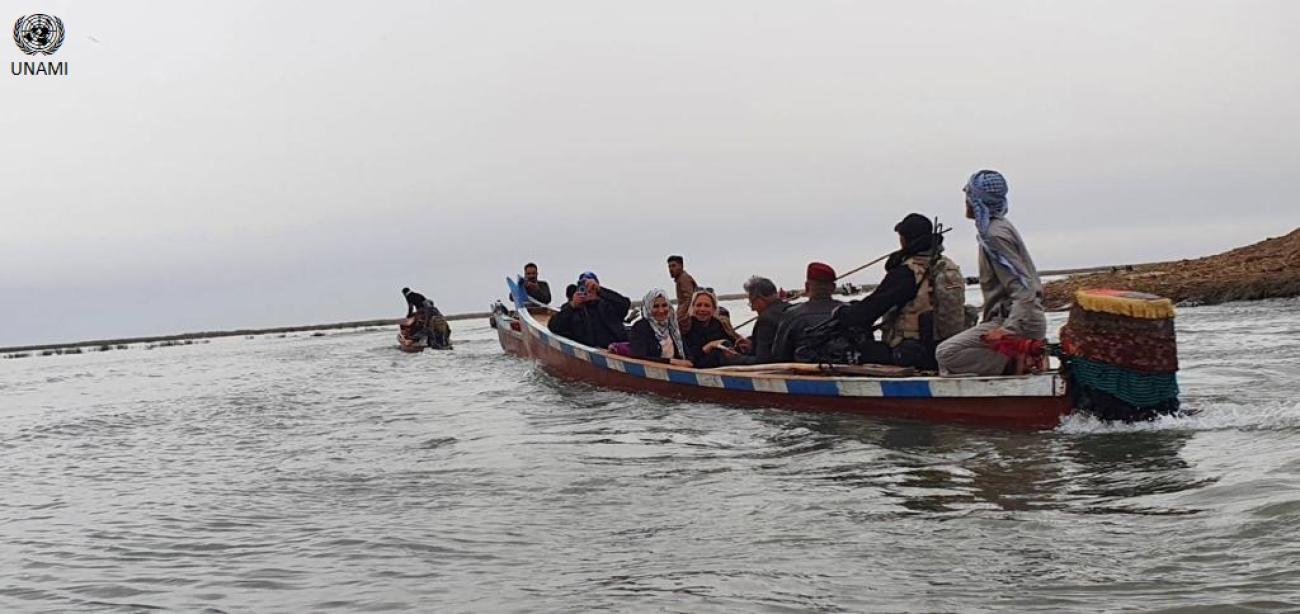SRSG Jeanine Hennis-Plasschaert visits Mesopotamian Marshes, witnessing firsthand the challenges arising from climate change, water shortages and population growth

As consistently reported by UN Iraq, drought and water scarcity are pressing concerns, and the marshlands of southern Iraq are among the worst affected areas.
With annual evaporation varying from 2.5 to 3 meters, and starkly reduced riverine flows supplying the marshlands, the area covered by water has been substantially reduced. Moreover, increased salinity and mineral concentration directly impact human and animal health. Urgent action is required to address the lack of potable water and associated risks, including forced displacement. Importantly, the Ahwar of Southern Iraq are also a World Heritage Site, a Biodiversity Refuge and the Relict Landscape of the Mesopotamian Cities. These sites, closely associated with the country’s ancient history and rich culture, are highly vulnerable and require conservation to prevent further irreversible erosion and collapse.
The main drivers of water scarcity include:
• Climate change effects and lower precipitation;
• Active reduction of water inflows by neighboring countries;
• Ineffective water resource management as well as inadequate water infrastructure and maintenance;
• Salinization of soils and water.
UN SRSG Jeanine Hennis-Plasschaert: The marshlands are not only magnificent landscapes, they are also essential for Iraq’s biodiversity. While Iraqi authorities express their commitment to tackling climate change challenges, ownership across the political spectrum will prove essential. Water scarcity is a threat multiplier, adding to poverty, displacement, instability and conflict. These risks will only be exacerbated in the absence of concerted action and political resolve.
Based on the early warning reports received and assessments conducted in the field, FAO proposes to undertake early action to address the immediate needs of poor rural households, starting with buffalo breeders in and around the marshes. The immediate needs are animal feed (e.g. molasses, wheat bran and corn silage). In response to more structural needs, FAO has started to assist poor smallholder farmers and landless rural households in Basrah, Missan and Thi-Qar Governorates to improve agricultural productivity and income generation in a number of priority value chains, namely tomatoes, dairy (buffalos) and date palms. Many UN agencies are active in the southern region: FAO has joined hands with GIZ, ILO, IOM, ITC and UNESCO to implement a large EU-funded Agri-food Business Development Program; UNICEF focuses on improved access to potable drinking water; UNDP and WFP concentrate on economic development and livelihoods support.
For more information, please contact: Mr. Samir Ghattas, Director of Public Information/Spokesperson
United Nations Assistance Mission for Iraq, Phone: +964 790 193 1281, Email: ghattass@un.org
or the UNAMI Public Information Office: unami-information@un.org






